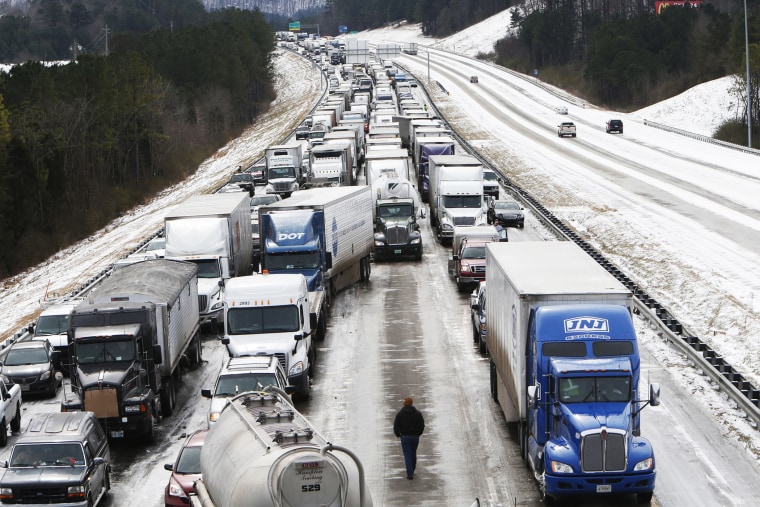The latest proposal, which passed the Republican-controlled House Ways and Means Committee on Thursday, works like this: If you change corporate pension funding rules to let companies set aside less money today to pay for future benefits, they will report higher taxable profits. And if they have higher taxable profits, they will pay more in taxes over the 10-year budget window that Congress uses to write laws. Those added taxes can be diverted to the Federal Highway Trust Fund. Unfortunately, this gimmick will also result in corporations paying less in taxes in later years, when they have to make up for the pension payments they're missing now. But if it happens more than 10 years in the future, it doesn't count in Congress's method for calculating budget balance. "Fiscal responsibility," as popularly defined in Washington, ignores anything that happens after 2024.
Good news, bad news on the Highway Trust Fund
There's a smarter way to fund U.S. infrastructure, but congressional Republicans won't consider it.

Congress has just a few weeks remaining until the Highway Trust Fund runs out of money. To put it mildly, that would be extraordinarily bad for the economy -- the Highway Trust Fund finances nearly all federally-supported transportation infrastructure in the United States. If the fund is exhausted, 700,000 workers would no longer have a job and infrastructure projects nationwide would be abandoned -- before they're done.
Indeed, there's some evidence congressional delays have already undermined the economy, preventing the start of some construction projects that couldn't begin because local officials weren't sure if Capitol Hill would act on the highway bill before the deadline or not.
The good news is, Congress wants to restore Highway Trust Fund resources, preventing a disaster. The bad news is, lawmakers disagree about literally every other facet of the debate.
President Obama already sent a strong infrastructure package to Capitol Hill, which would give the economy an important boost, and which Republicans immediately said they would not pass. The Senate Democratic majority also prioritized a long-term extension for the Highway Trust Fund, which GOP lawmakers also rejected.
This, in turn, left lawmakers scrambling, looking at a variety of bad choices, none of which they have time to debate in earnest. And that has led Congress to once again turn to its old standby: a short-term fix, which will prevent a crisis while kicking the can down the road.
Of course, even short-term fixes have to be paid for. Josh Barro reports on the House Republicans' preferred approach.
Many of you are probably thinking, "There has to be an easier way for the nation to build highways." And there is. It's just that Republicans don't like it, so it won't happen.
For years, the Highway Trust Fund has been financed by a federal gas tax, which made a fair amount of sense -- the idea was to create a system in which drivers paid for roads, and this was the most direct solution.
But Republicans have rejected efforts to raise the tax every year for over two decades. And since it isn't adjusted for inflation, the purchasing power of the current gas tax is down to about 63% of what it was in 1993 -- and dropping more every year.
Raise the gas tax and the Highway Trust Fund will be fine. Refuse to raise the gas tax and we're left with "creative" approaches that allow corporations to underfund pensions.
Making matters slightly worse, let's not forget that Republicans are relying on so-called "pension smoothing" to keep the Highway Trust Fund from going broke, but Republicans have also condemned this exact same policy when Democrats offered to use it to pay for unemployment benefits.
In other words, Republicans hate this fiscally irresponsible gimmick -- except when they think they need it, at which point it's fine.
And even if Congress, nearly out of time, accepts this as a stopgap measure, this will only bolster the Highway Trust Fund for a short while, meaning Congress will have to revisit this same debate in about a year.
Americans can, at a minimum, take at least some solace in the fact that lawmakers don't want to let the fund run out of cash. As Greg Sargent noted this morning, Republicans have resisted public investments in infrastructure for years, but the Highway Trust Fund is different: "[T]here could be numerous examples of projects grinding to a halt in GOP districts."
In the end, something will probably be worked out. It'll be ugly and inelegant; it'll be fiscally irresponsible; and it'll invite another dumb debate a year from now, but it probably won't cause 700,000 layoffs in early August.